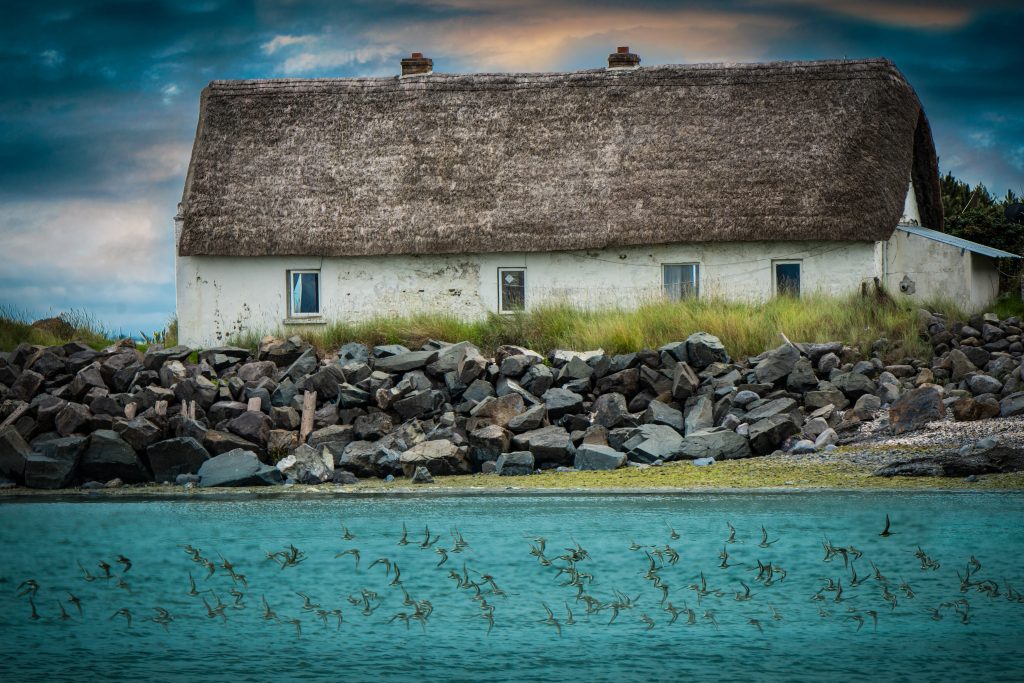Sustainable Energy Communities (SEC), run through the Sustainable Energy Authority of Ireland (SEAI), offer communities the opportunity to become more energy conscious and energy efficient. Once a steering group is established, the next step is to develop an Energy Master Plan (EMP) for the community. A grant is available to pay a consultant to do this work.
In late 2018, Meath County Council met with residents of Batterstown, a small rural village, and their mentor, Gavin Harte. It was clear that the committee, under the leadership of Philip McCormack, had put many hours work into gathering information and engaging with the village community and were keen to progress through the SEC process. However, the initial cost of procuring and appointing a consultant to develop the Energy Master Plan would be difficult for this small community.

After discussions with our Finance Section, Meath County Council agreed to become lead partner with Batterstown Sustainable Energy Community and procure and pay for the consultant then recoup the money from SEAI. This decision was not taken lightly. One of the deciding factors was the clear dedication and commitment of Philip and his colleagues and knowing they would be strongly supported by their mentor, Gavin. It was clear they intended to deliver on the EMP. In early 2019 the partnership was formed and consultants procured and appointed.
To celebrate this partnership and showcase the SEC, the County Council hosted a launch event. This was made up of two parts. First, a display area showcased local companies promoting various energy efficient technologies, electric vehicles and other climate, energy or sustainable businesses. Following this, a ticket-only event was held where the council, the SEC, SEAI and the mentor explained the partnership and process of becoming a SEC. This event had two benefits: it opened up the SEC process for those interested in starting the journey, and enabled them to speak to people who are going through the process. A second, unanticipated benefit was that showcasing the local suppliers became the template for our Climate Action Roadshows, six of which were held between 2019 and early 2020.
The partnership is mutually beneficial. The SEC benefits from the council’s expertise and procurement skills, ensuring correct procedures are followed, and the worry of funding the EMP is removed. For the council, it connects us to a group of willing people to engage with our climate work and enhances our reputation. From a national perspective, our arrangement aligns with the government’s Climate Action Plan To Tackle Climate Breakdown 2019 and recent programme which seeks to establish 1,500-plus Sustainable Energy Communities nationally.
Partnership and collaboration are important and we are fortunate to have a strong relationship with Dunleer SEC, now a not-for-profit business in the adjoining county of Louth, who have been extremely helpful with delivering workshops and supporting the SEC and facilitated the inclusion of houses from Meath in their Better Energy Community application. The lead partnership model has had interest from other local authorities across the country and is considered very good practice.
And where are Batterstown SEC now? The EMP was delivered in early 2020. The planned launch of the SEC was unfortunately postponed due to Covid-19. The biggest development was Philip McCormack becoming the SEC Mentor for County Meath, bringing his expertise and enthusiasm to many more citizens.
Core to any successful initiative is the ethos of equity and partnership, where information and benefits flow freely. Our SEC programmes are based on this ethos. Initially, there is a heavy investment of time in communication. Potential SEC communities are fully informed not only of the benefits of the schemes but also of the level of work, commitment and investment required to ensure success. Only when this is understood can communities gain ownership. Once community buy in is established, then organic growth from within ensures the long-term development and can seed future sustainable energy thinking.
Meath County Council, through the elected members and executive, believes strongly in empowering the communities that live within our area. Supporting communities that require a hand up rather than a handout is preferable. The aspirations of all our communities are fundamentally the same, regardless of county or country. In these changed and changing times, challenges continue to present us with opportunities to innovate and Meath County Council’s commitment to supporting our communities and our people is stronger than ever.
About the authors:

Caroline Corrigan is the Climate Action and Sustainable Development Goals Officer for Meath County Council and David Gilroy is the Cathaoirleach (Chairperson) of Meath County Council and Chairperson of the Councillor-led Climate Action Forum. Both are strongly involved in the promotion of climate action and sustainability awareness in the county.
This blog article was co-created by Josephine Valeske and is part of the mPOWER blog series in which cities and towns share how they are building better energy futures. The article was originally published on https://municipalpower.org/articles/empowering-local-communities-through-partnership-in-meath/. This project has received funding from the European Union’s Horizon 2020 research and innovation programme under grant agreement number 785171.
Title Image Credit: Magdalena Smolnicka on Unsplash
